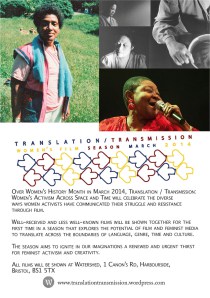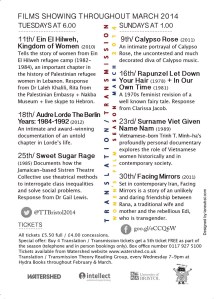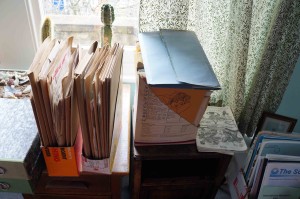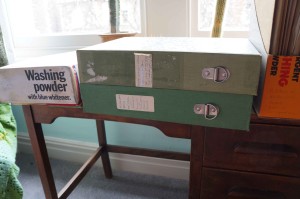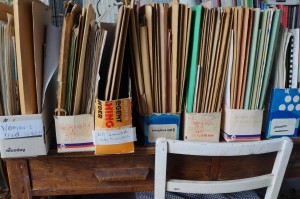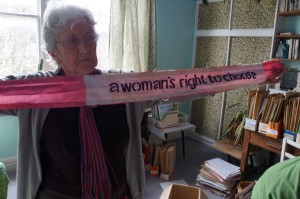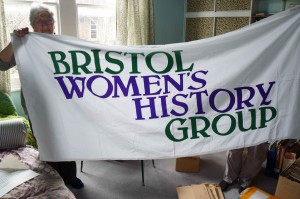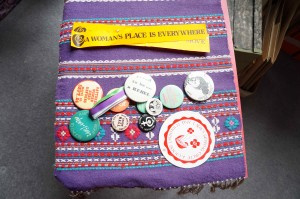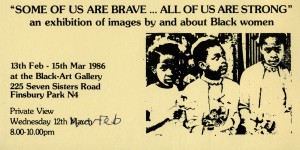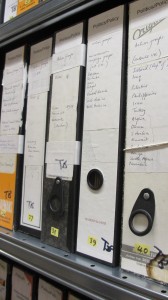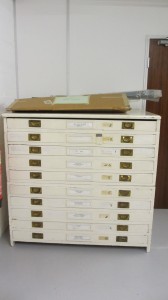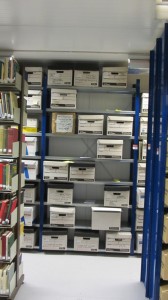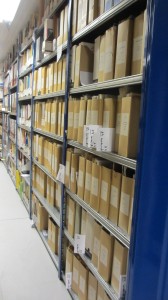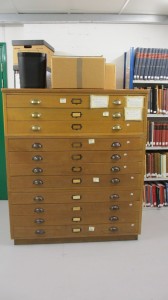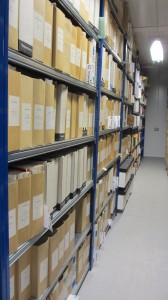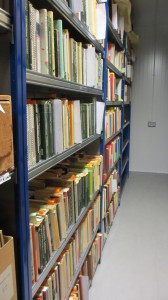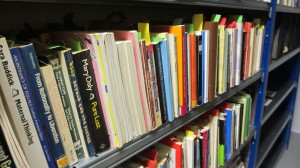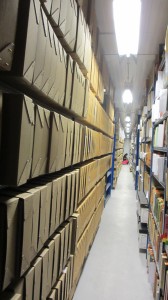The post Translation/ Transmission: Women’s Activism Across Space and Time Film Season, March 2014 appeared first on Feminist Archive South.
]]>Translation/ Transmission brings together well-received and less well-known films that will be shown together for the first time in a season that explores the potential of film and feminist media to translate across the boundaries of language, genre, time and culture.
Translation/ Transmission features activist documentaries and women filmmakers from the Women’s Liberation Movement in Britain, Jamaica, Palestine, Germany, Vietnam, USA, Iran and France/ Cameroon, highlighting the diversity of different feminisms across geographical locations and historical moments.
Screenings will be enriched by discussion from activists, academics and artists; audiences will be invited to participate in discussions about the role played by feminist artists and filmmakers in rendering visible forgotten histories and marginalised experiences.
We are excited to be sponsoring the screening of Rapunzel, Let Down Your Hair and In Our Own Time which is taking place on Sunday 16 March at 1pm.
Check out the full programme.
The post Translation/ Transmission: Women’s Activism Across Space and Time Film Season, March 2014 appeared first on Feminist Archive South.
]]>The post Sheba Press & worries about link rot appeared first on Feminist Archive South.
]]>So when conducting research about Sheba Feminist Press, who published the important Black British feminist text Charting the Journey in 1988 and many others, it was a relief to find some information about them.
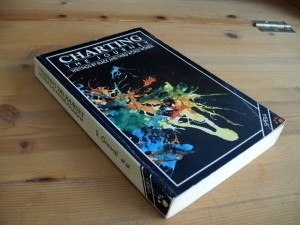
What was slightly disconcerting was the nature of the web page, which appeared graphically old and was hosted by a US university site. It wasn’t being actively maintained and was the kind of link, you suspect, that would soon disappear.
In short, this is the rationale for reproducing the text below in its entirety from that web page in case it breaks, or vanishes.
For further information, the Women’s Library in London was donated records from Sheba Press (1980-1994) in 1995, but it remains uncatalogued and unaccessible to researchers.
Now there’s a funding bid that needs to happen!
ABOUT SHEBA FEMINIST PRESS
Sheba Feminist Press was established in 1980 — one of a handful of small independent publishers born of the UK women’s movement during the 70s and early 80s. The new feminist presses turned their backs on the high-modernist clique then firmly in control of the British book scene, and looked instead at what that world literally couldn’t see: the writing of women who hadn’t been to Oxford or Cambridge, and who weren’t necessarily white or heterosexual or middle-class, and who didn’t speak with the polished vowels of Bloomsbury. The new writers weren’t seduced by the pastoral English idyll of haywains and cottages and
servile, cap-doffing peasantry. They wrote instead about what it was like to live as an ordinary, non-privileged woman in post-imperial Britain in the second half of the twentieth century. The ordinary, non-privileged women who constituted a large part of the book-buying public found their own lives reflected in
these books, and responded with what can only be called devotion. The phenomenal success of women’s publishing was probably the single biggest factor in the dissemination of feminist ideas to
women in the UK.
Today, mainstream UK publishing has been persuaded of the marketability of women writers. Many large publishers have their “women’s studies” lists, and women novelists (some of them) get
reviewed on the literary pages, just like men. But old predilections die hard — particularly, in Britain, the predilections associated with intellectual and social snobbery: if more women writers are published now than in 1965, it remains true that the majority are white, heterosexual, and middle-class.
Sheba has a mission to challenge this persistent bias. We give priority to the work of women writers who continue to be marginalized. That means more than simply being ready to publish writing by women of colour, or lesbians, or working-class women; it means recognising the multiplicity of voices within these
communities — a multiplicity which is frequently overlooked by a world quick to categorize and dismiss. Sheba has built its reputation around its commitment to diversity, to difference, and to open and critical debate. One of our earliest titles was Feminist Fables — a retelling of myths, from a lesbian-feminist
viewpoint, by an Indian woman, Suniti Namjoshi. Published in 1981, when lesbian-feminists were universally assumed to be white, and Indian women universally assumed to be heterosexual, Feminist Fables called into question this cosy compartmentalization; it can be seen in retrospect as a harbinger of the coming
struggles over difference and diversity, which by the end of the decade had put paid to the myth of a unitary feminist identity.
This commitment to openness and to diversity has made Sheba a key player in the ongoing feminist debates around sexuality. In the Seventies and the early Eighties, many women had a new and pleasurable sense of ownership over their bodies and their sexuality; and this was reflected in the books being published.
For Ourselves (Anja Meulenbelt, 1981) was characteristic: written by a woman, for women to read, it rejected the marriage-guidance approach which had previously dominated the field (“Doctor, my
wife is frigid. Can you help me?”) and acknowledged women’s sexuality as a private source of pleasure and power available to all women. Joanni Blank’s The Playbook for Kids About Sex (first published in the US by Down There Press) adopted a similarly positive attitude; children were encouraged to explore their bodies and to experiment with masturbation, fantasy, and sexual play. These and other Sheba titles contributed to the growing acceptance of women as autonomous sexual agents, rather than eternal objects, and helped to undermine the cultural prescription of what Adrienne Rich described as “compulsory heterosexuality”.
As the old prescriptions crumbled, however, new ones sprang up to replace them. The ideological association of sexuality with patriarchal power, expressed through pornography and rape, made sex seem synonymous with oppression. For women, desire was taboo all over again. In 1988, Sheba challenged this new puritanism by bringing out the UK edition of Joan Nestle’s A Restricted Country (first published in the US by Firebrand). The publication of this collection of essays and stories about lesbian sexuality acted as a catalyst on the simmering dissensions over lesbian sado-masochism, butch-femme relationships, and perverse sexuality, and gave the UK proponents of sexual autonomy an important cultural reference point.
The following year, Sheba built on the success of A Restricted Country, by bringing out Serious Pleasure, a collection of lesbian erotica . Although the controversy over pornography and censorship continues, it is clear from the popularity of Serious Pleasure and its successor, More Serious Pleasure that there is a strong and growing demand from many UK lesbians for well-written, explicit, woman-centred erotic material. (N.B. Serious Pleasure and More Serious Pleasure are published in the US by Cleis Press.)
Today, Sheba continues to prioritize the work of women of colour and lesbians. A number of prominent Black U.S. writers have been published in the UK by Sheba, among them bell hooks, Audre Lorde, and Jewelle Gomez. Sheba is now turning its attention to the exciting possibilities opened up by new technology, particularly multimedia and computer-mediated communications. We welcome the
new ease with which we can communicate with other women in countries all over the world; Sheba’s dedication to openness, fluidity, and the absence of boundaries finds a natural home on
the Internet.
Whatever the medium, the message remains the same: feminism, diversity, debate. If you would like to know more about Sheba, please write to us at [email protected]. We’d like to hear from you, and we promise to answer all messages. Sheba titles are available in the U.S. from Inland Book Co., and in Australia from Bulldog Books.
Sheba Feminist Press is a not-for-profit workers’ co-operative.
The post Sheba Press & worries about link rot appeared first on Feminist Archive South.
]]>The post Sistershow materials catalogued and searchable appeared first on Feminist Archive South.
]]>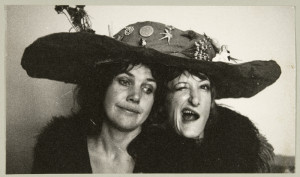
Pat VT West & Jackie Thrupp sit together under a giant hat that was made by Jackie for the first Sistershow performance in March 1973
In the meantime, enjoy these photos that we digitised as part of the project:
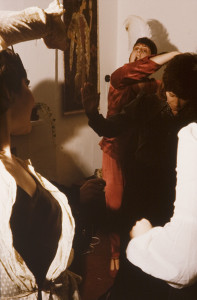
The figure dressed in red satin is Alison Rook, who donated a large archive for the exhibition, and was instrumental in getting the project off the ground.
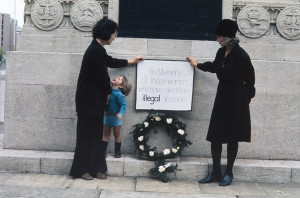
Part of Helen Taylor and Brenda Jacques tape slide project that was used to raise awareness between women/ feminist groups about the activities and ideas behind women’s liberation
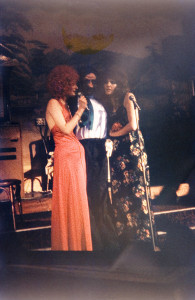
One of the few photographic documents of the Sistershow performances. This is the first show, that took place at Bower Ashton. Note the degradation of the image.
We still have catalogues from the exhibition available and you can get one for a small donation.
The post Sistershow materials catalogued and searchable appeared first on Feminist Archive South.
]]>The post Ellen’s Papers available on the Special Collections Catalogue appeared first on Feminist Archive South.
]]>Ellen Malos’ archives are now searchable on the Special Collections catalogue at the University of Bristol.
They carry the classificatory mark of ‘Ellen Malos Papers, DM2123/8/112-128′ should you wish to find them.
Thanks to Sarah Cuthill, the project archivist, for her fantastic work getting all the papers organised to such a high standard!
The post Ellen’s Papers available on the Special Collections Catalogue appeared first on Feminist Archive South.
]]>The post What can history do? What does history mean to you? What does history mean to us? – Call for Contributions appeared first on Feminist Archive South.
]]>The pamphlet will be published for the end of the Ellen Malos’ Archives project in September 2013. It will be distributed to schools, further education colleges and libraries in Bristol, the South West and further afield on request (we have limited budget for distribution but can provide free copies should you want some).
We invite people to explore these questions in whatever way they wish, but please do think about the question of what history can do, what it means to individuals and what it can possibly mean to communities, collectives or whatever other way you want to envision/ interrogate/ reconfigure/ think about ‘us.’
Contributions should be written in a non-specialist language as it is envisaged that a wide range of ages and backgrounds will read the pamphlet.
We want to use the pamphlet as a space to explore the practicalities of history making – for example running discussion and memory groups, oral history projects, grassroots archives (on and offline), exhibitions and other ways individuals and communities explore, recover and use history to understand their identities, where they live or the cultures they belong to.
If you work for a feminist or women’s archives, please consider a contribution that tells us about your collection – we plan to have a directory at the back which lists archives and libraries where people can find out about history.
You may also want to consider if digital media has had an impact on the question of what history can do, and how it is shaping individuals and communities right now.
Other contributions can be in the form of
- Visual art e.g., Illustrations, photos, cartoons, posters
- Essays and critical writing
- Philosophical reflections
- Telling radical histories
- Profiles of archives, collections, museums, projects, websites/ web resources
- Practical ‘how to’ articles – e.g., how to use an archive, how to work with historical sources, digital archiving and information management
- Creative Writing, including poetry
- Interviews with interesting projects
- Interviews with people in your community
All written contributions must not exceed 1500 words
All images must be sent as JPEGs 300 DPI
Deadline for contributions
15 July 2013
Please send contributions to [email protected] and contact us for further information
The post What can history do? What does history mean to you? What does history mean to us? – Call for Contributions appeared first on Feminist Archive South.
]]>The post Workshop this Tuesday 16 April and other information appeared first on Feminist Archive South.
]]>This week is the beginning of the Feminist Archive South’s workshop programme. The first workshop is taking place this Tuesday 16 April 7-9.30 pm at MShed. All welcome but please contact us to let us know you are coming!
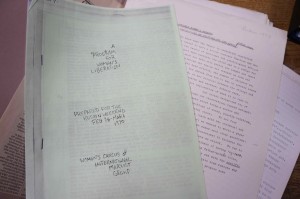
Program for Women’s Liberation first read at the Ruskin Conference in 1970 – one of the items we will be looking at in the workshop
We’ve also updated information about the workshop sessions taking place later in the year…..
- Sunday 12th May – 1 to 5pm – We are joined by Hannah Little, ex-archivist at the Glasgow Women’s Library to explore the art and science of archiving.
- Thursday 23rd May – 7 to 9.30pm – Focus on the content of Ellen Malos’ archives.
- Sunday 9th June – 1 to 5pm – Members of South West and South Wales Women’s History Network will be facilitating this session. They will provide insight into how historians interpret historical sources, using the Ellen Malos archive.
- Tuesday 18th June – 7 to 9.30pm – Exploring the Feminist Archive South’s Greenham Common archive.
- Thursday 27th June – 7 to 9.30pm - The Bristol Feminist Network will help us to explore the continuities and difference between contemporary campaigns and the activism of the Women’s Liberation Movement.
- Saturday 6th July – 1 to 5pm – Folk legend and co-author of My Song is My Own Frankie Armstrong will talk about the process of recovering women’s musical folk traditions. Followed by a good old feminist singalong!
- Saturday 20th July – 1 to 5pm – Special Focus on the history of Women’s Aid in Bristol. Ellen Malos, Gill Hague, Nicola Harwin and others will facilitate this special session on the development of Women’s Aid.
The post Workshop this Tuesday 16 April and other information appeared first on Feminist Archive South.
]]>The post Work on cataloging Ellen’s archive begins! appeared first on Feminist Archive South.
]]>Ellen was also showing off some of the banners for campaigns and groups she was involved in, including this rather fetching sash.
If you want to get involved and help the project archivist organise the material, please contact us. Its a great opportunity to learn how a collection is catalogued, and you get some hands on experience doing the work. We are particularly looking for people to get stuck in now, so don’t hesitate if you are interested!
The post Work on cataloging Ellen’s archive begins! appeared first on Feminist Archive South.
]]>The post Feminist and Women’s Archives in the UK: Profile No. 1 – Black Cultural Archives appeared first on Feminist Archive South.
]]>Its true that many archives and libraries are in a precarious position, largely due to a lack of funds to support this crucial part of the UK’s cultural heritage. This often means that opening hours can be limited, or access restricted. The Women’s Library in London is currently moving to LSE and of course our own archive is still adjusting to our move to Bristol University – and that was almost four years ago!
In this new feature on the Feminist Archive South website, we have contacted curators and archivists based at the main feminist archives in the UK, or in other specialist archives which have prominent collections relating women’s activism.
We want to get a picture of the current archive/ library landscape, and learn about the challenges these institutions are facing, and what hopes they have for the future.
The first person to get back to us was Hannah Ishmael, Assistant Archivist at the Black Cultural Archives in London. Thanks Hannah for getting the ball rolling!
1. What is the name of your collection, and where is it based?
Black Cultural Archives, based at 1 Othello Close, Kennington. We will be moving to Windrush Square, Brixton in 2014.
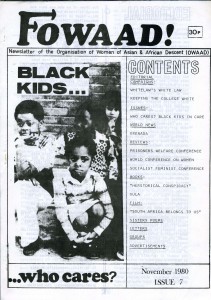
Front cover of Fowaad, the newsletter of OWAAD. Please credit: Ref. DADZIE/1/8/1 (c) Stella Dadzie, available at Black Cultural Archives.
2. If I wanted to access the collection, what would I need to do (when is it open, etc)?
We are open every Wednesday, from 10:00-16:30, by appointment. Please email the reading room, [email protected] for more information.
3. What type of things are collected in the BCA related to the black women’s movement, and black women from 19th Century to the present day?
We have a number of collections relating to the Black women’s movement. One of the most used collections is the oral histories of the Black women’s movement from the late 1970s and early 1980s. The collection contains 36 interviews with women from a range of backgrounds, but who were active in the Organisation of Women of Asian and African Descent (OWAAD) that was an umbrella organisation for a number of other Black women’s groups.
We also have the papers of Stella Dadzie, co-author of The Heart of the Race, relating to her work with OWAAD and her student activities; a small collection of the papers of Suzanne Scafe, another co-author of the Heart of the Race, and the papers of Jan Mckenley another key activist.
Finally, we have the papers of the Runnymede Trust, a race relations think tank which contains a number of research files relating to issues facing ethnic minorities, and women.
4. Do you have a favourite part of the collection, and why?
Although I find all of the collections fascinating, I do enjoy listening to the oral histories. They offer a rare chance to listen to women exploring their identity and history, and to give a more human voice to the struggles of women.
5. What are the plans for the collection in the future?
We are continuing to collect a wide variety of material, to build our collections and to be able to fully present the contributions Black people have made to the culture, society and heritage of the UK.
6. Anything else you want to say about your activities?
The opening exhibition for Black Cultural Archives in Brixton, will be focusing on the Black women’s movement, and taking the book ‘The Heart of the Race: Black Women’s Lives in Britain’ (1985) as the inspiration.
***
If you are part of an archive, library or work in an archive relating to women’s history and want to be featured on this website, please get in touch. You can answer the six questions above, and please send us 1-2 photos as illustration.
The post Feminist and Women’s Archives in the UK: Profile No. 1 – Black Cultural Archives appeared first on Feminist Archive South.
]]>The post The secret life of the archive appeared first on Feminist Archive South.
]]>These photos were taken by our archive detective in Special Collections, and allow us to see part of the story.
The material in the Feminist Archive South are kept in storage a few miles away from Special Collections at Bristol University.
If you want to view items in the collection you need to order them, and they can take a week to be retrieved from storage.
While we want to make the Feminist Archive South as accessible as possible, you can see there are limitations on how quickly we can get the material.
In the next few months we will work hard at getting as much of the catalogue online so it will be easier for people to order items and plan their visit.
Even though the FAS moved to Bristol University in 2009, like moving house, transitions can be stressful and take a long time (particularly if you have loads of stuff!)
We are starting to make progress, and the recent HLF grant provides us with vital resources to do this work.
In the meantime, enjoy these photos!
The post The secret life of the archive appeared first on Feminist Archive South.
]]>